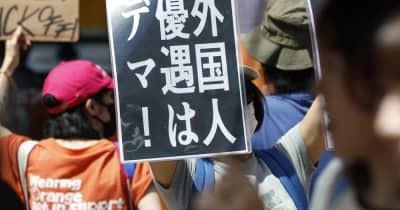
During the July parliamentary election, misinformation, particularly regarding foreigners, spread widely. Claims such as “crime rates are increasing” and “foreigners are unjustly favored” persisted despite government denials and fact-checking by media outlets. These messages were repeated via social media and public speeches, fostering an anti-foreigner narrative. This raises questions about why misinformation continued to spread and why fact-checks were ineffective in curbing its reach.
Akira Igarashi, an associate professor at Osaka University specializing in immigration and discrimination, expressed surprise at how the foreigner issue suddenly became a central topic in the election. He noted that Japan generally doesn’t harbor strong negative feelings towards immigrants compared to other countries. Despite a significant increase in foreign visitors, especially driven by a weak yen, crime rates involving foreigners have actually decreased over the past two decades.
However, there’s a disconnect between reality and public perception. Igarashi’s research found that many people overestimate the percentage of crimes committed by foreigners, reflecting a cognitive distortion linking foreigners with criminality. This distortion, coupled with the spread of false information, can foster xenophobic attitudes, especially when politicians amplify such rhetoric.
The response to fact-checks appears limited. A post-election survey by Kyodo News showed that 65.6% of people believe regulations on foreigners should be strengthened, suggesting growing resentment. Igarashi highlighted that correctional information might not be reaching the public effectively. Studies show that many people deliberately avoid fact-checks that contradict their beliefs.
Tomoko Yasuno, a professor at Chuo University, explained that cognitive biases, such as confirmation bias and the illusion of truth, make people more susceptible to misinformation. Social media exacerbates these biases through filter bubbles, limiting exposure to diverse viewpoints.
The current media environment may contribute to the lack of critical examination of xenophobic narratives. In contrast to Western countries with stronger norms against expressing xenophobic views, Japan’s media has often failed to challenge such rhetoric adequately.
Experts recommend a more empathetic approach in delivering fact-checks to avoid appearing condescending. Persistently providing correctional information can gradually change attitudes. Additionally, addressing the underlying social insecurities that fuel these misconceptions is crucial. The feeling among many that ordinary citizens are undervalued must be acknowledged and addressed to prevent the spread of misinformation.
by MagazineKey4532
